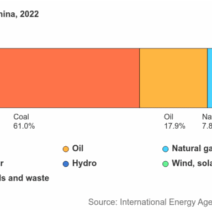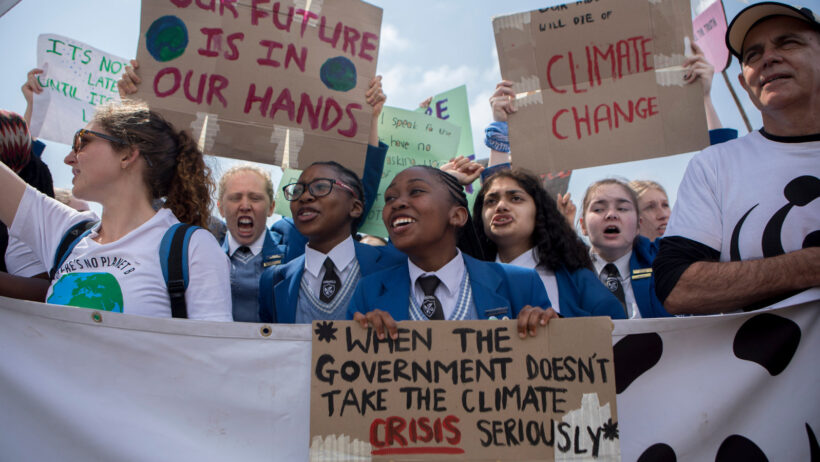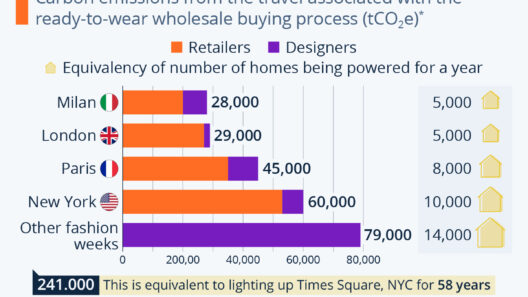In recent years, conversations surrounding climate change have intensified significantly. Among prominent media figures, Don Lemon has emerged as a notable voice, drawing attention to the urgency of the environmental crisis. His phrase, “I want it!”, resonates with a sense of moral conviction and determination that is pivotal in the discourse on global warming.
This expression is not merely an emotive outburst; it encapsulates a yearning for action, a call for society to embrace transformative change. As the climate crisis escalates, with increasingly severe weather patterns, rising sea levels, and biodiversity loss, Lemon’s stance is both provocative and imperative. It raises essential questions about the responsibilities of individuals, governments, and corporations in confronting this existential threat.
Beginning with the fundamentals, it is critical to understand the phenomenological basis of global warming. Predicated on the accumulation of greenhouse gases in our atmosphere, this phenomenon engendered by human activity, particularly the burning of fossil fuels and deforestation, results in a warming planet. The ramifications are profound: shifting weather patterns, decreased agricultural productivity, and threats to water supply systems. Each of these facets underscores the necessity for a paradigm shift—an awakening to the reality that climate change is not a distant threat but an immediate crisis that warrants decisive action.
Discussions of climate change have historically lagged in urgency, often relegated to the back burner of political and social discourse. Don Lemon, however, seeks to revitalize this conversation by emphasizing not just the challenges but also the potential for innovation and adaptation. His insistence on wanting change speaks to the latent potential within societal frameworks to embrace sustainable practices. By fostering a narrative that is not purely defeatist, Lemon invites audiences to consider the numerous solutions currently available.
One critical area of focus is renewable energy. Transitioning from fossil fuels to energy sources such as solar, wind, and hydroelectricity is essential in reversing the ongoing damage to our planet. Lemon’s perspective aligns with significant scientific consensus; rapid adoption of clean energy technologies is an achievable goal that can yield substantial benefits. The promise of energy independence, economic growth through green technologies, and reduced pollution exemplifies the multifaceted advantages of such a shift.
Moreover, Lemon’s call to action encompasses the role of legislation and government accountability. Policymaking is crucial in establishing regulatory frameworks that promote sustainability. Carbon pricing, investment in public transportation, and enhanced building codes are but a few examples of how governmental bodies can incentivize lower carbon footprints. Furthermore, Lemon’s passionate rhetoric urges constituents to hold elected officials accountable for their inaction and to support leaders who prioritize ecological stewardship.
An equally vital aspect of the dialogue Lemon fosters is the interrelation between climate change and social justice. Climate issues disproportionately affect marginalized communities, exacerbating pre-existing inequalities. The recognition of this intersectionality is essential for implementing equitable solutions; combating climate change must also involve addressing systemic poverty, healthcare disparities, and access to education. Hence, Lemon’s assertion serves as a rallying cry for an inclusive approach that centers on the most vulnerable populations.
As communities mobilize to fight for sustainability, Lemon’s voice champions grassroots activism. The recent surge in environmental protests, particularly among younger generations, signals a significant cultural shift. Youth-led movements highlight the urgency of climate action and the innovative spirit of activism. They challenge traditional paradigms, demanding accountability from governments and corporations alike. Their fervor mirrors Lemon’s “I want it!” sentiment, emphasizing not just a desire for change, but an expectation for immediate and tangible action.
Additionally, public awareness generated through platforms like Lemon’s can catalyze a broader societal understanding of the implications of climate inaction. Media serves as a powerful tool in shaping narratives, influencing public perception and behavior. By spotlighting the scientific evidence behind climate change and showcasing the alarming statistics, it becomes clear that the data speaks with authority. The Intergovernmental Panel on Climate Change (IPCC) and other research bodies provide alarming reports that necessitate vigilance and action.
The allure of Lemon’s declaration also lies in its motivational aspect. Acknowledging that the pathway to a sustainable future is laden with obstacles, it simultaneously fosters hope. The notion that individuals can enact change within their own lives is a pivotal factor in combating climate change. Simple actions, such as reducing waste, supporting local economies, and advocating for sustainable practices, echo his rallying cry. This idea fosters empowerment, wherein every small effort contributes to a collective impact.
In conclusion, Don Lemon’s impassioned proclamation, “I want it!”, serves as a microcosm of the broader movement towards climate action and sustainability. It reflects an unambiguous desire for a world where ecological integrity is prioritized and the health of our planet is preserved for future generations. The amalgamation of renewable energy, responsible governance, social justice, and grassroots activism creates a formidable framework for confronting climate change. As society stands at a crucial crossroad, Lemon’s perspective ignites curiosity and compels individuals and institutions alike to ask themselves what they want to contribute to this clarion call. The imperative is unequivocal: the time for action is now.






